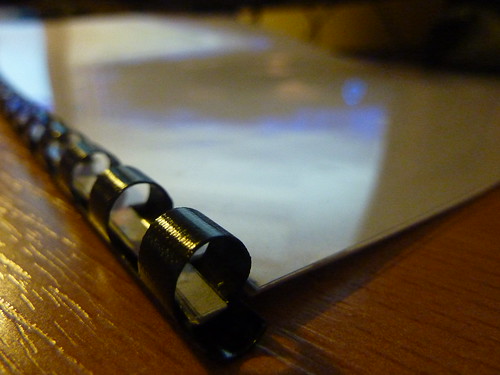February 2, 2012

In less than a week, two senior analysts in my company detected irregularities on documents we had received for evaluation and both were able to determine that the documents had been falsified. Though the due diligence exercised by our team of analysts in their scrupulous review and handling of these applications is to be applauded, I am left with an uncomfortable sensation in the pit of my stomach. The two individuals whose false documents were quickly detected are intending to pursue employment and further studies in fields directly related to the welfare of the public. We may have succeeded in protecting our institution and those directly related but not the larger network of institutions and the general public. These individuals’ fraudulent documents may easily slip through the cracks in the hands of a less-experienced credential evaluator, personnel administrator, or college admissions officer.
Several years ago, I served as an expert witness on a legal case where the plaintiff, a young woman, had been misdiagnosed by a psychiatrist and suffered extensively under this therapist’s care. My investigation of the psychiatrist’s degrees revealed a trail of altered documents and diplomas from non-existent institutions. In fact, one of the universities he claimed to have attended for his doctorate degree was a diploma mill. The plaintiff was able to go forward and press charges, and the therapist’s license for practice was revoked. (A definition of diploma mills is provided on the US Government’s Department of Education website.)
According to a 2003 report by UNESCO’s International Institute for Educational Planning, “Academic fraud appears to be on the increase across the world, in developing and developed countries alike. It is a costly threat to societies, to their efficient operation and to public trust in the reliability and security of their institutions.”
The question we need to ask is what is causing this steady increase in academic fraud? What is the motivation? Is it an act of desperation? Is it a reaction to a competitive marketplace? There’s the old adage that desperate times force people to take desperate measures. But falsifying documents, in particular academic documents, which in many instances are used as the benchmark to qualify for a job or professional training, endangers the lives of those who are directly affected by the actions and services of the very people who misrepresent themselves as technicians, engineers, doctors, and teachers. The increasing participation in formal education perpetuates competition; competition for access to higher education, for jobs, training, higher salaries, promotions, and professional recognition. A few months ago, a news report spoke of a university professor in The Netherlands who had falsified his doctoral dissertation and held a teaching post at a prominent university. It is not just the individual immigrating to a new country, desperate to find a job to support his family, who may, out of desperation falsify his/her academic documents. The psychology of fraud transcends borders, cultures, and socio-economic ranks.
As our societies and economic structure continue to develop and expand–demanding a highly educated and skilled workforce–the pressure to obtain academic documents which meet these skillsets increases. It is no longer sufficient to complete the minimum required levels of education when higher and more specialized degrees are becoming the norm. One’s success in school and university has great value. Successful performance in examinations helps open not only doors to higher education and professional training but ensure a better chance of securing a job or promotion in a pool of qualified and aspiring candidates.
Advances in electronic communication, sophisticated copy machines and computer printers, system-wide bribery, plagiarism, degree and paper mills, impersonations, are now contributing to an industry of academic document fraud. We sit and watch perpetrators of white-collar crimes receive little or no punishment for their actions. Instead, we reward them with book deals, TV shows, high-paying consulting and speaker’s fees! We must shift our global mindset to a culture where integrity and ethical behavior are fostered and applauded; not a culture that supports and encourages the motto of “success by any means” where unscrupulous actions are the norm.

Jasmin S. Kuehnert
President & CEO of Academic Credentials Evaluation Institute, Inc. (ACEI)
www.acei1.com
Since founding ACEI in 1994, Jasmin and her team of analysts have dedicated
themselves to the advancement of international academic exchange and
understanding, through the dissemination of information on world educational
systems, and evaluation of international academic documents.
![]()


